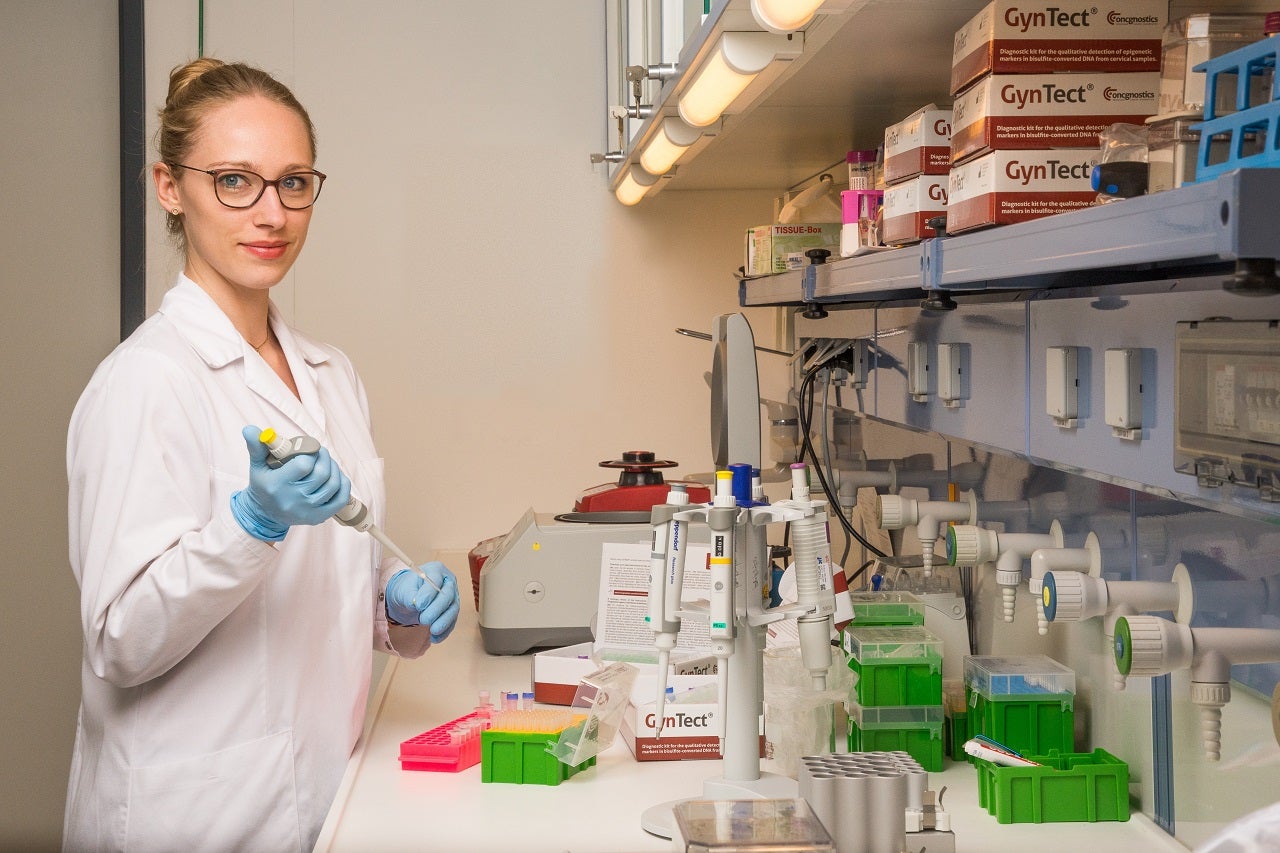oncgnostics Looks Back on a Successful Year of Research in 2020, Provides an Outlook to 2021

2020 was a challenging year – also for oncgnostics GmbH. Nevertheless, the biotech company from Jena (GER), known for its early detection test for cervical cancer (GynTect®), looks back on successful achievements.
GynTect® convinces in test comparison
In November, the journal ‘Clinical Epigenetics’ published a comparative study on cervical cancer diagnostics tests. Two tests based on epigenetic markers, oncgnostics’ GynTect® and QIAGEN’s QIAsure, were tested on a number of patient samples. Both tests may be used to identify clinically relevant, HPV-induced cervical disease that may develop into cancer. The aim of the study was to determine not only the sensitivity but also the specificity of the tests, which means how frequently a test delivers a false-positive result. Both tests demonstrated a very good sensitivity for high-grade lesions, especially for cancer cases. However, for GynTect®, the specificity was significantly higher, which means that the rate of false-positive results among healthy HPV-positive women was much lower. Thus, GynTect® may be preferable, due to its higher specificity for CIN2+ or CIN3+.
oncgnostics has been active in research despite Corona
In August 2020, a study on psychological stress in connection to abnormalities found in cervical cancer screening was published, with the contribution of oncgnostics GmbH. More than 3700 women participated in this scientifically supported online survey. Women with abnormal Pap smear findings or with an HPV infection stated, among other concerns, that they are worried about developing cancer. Even though neither an abnormal Pap smear finding nor an HPV infection does provide a reliable indication of cancer. Nearly half of those affected even expressed fears of dying from cervical cancer. The results were published in the journal Archives of Gynecology and Obstetrics.
Furthermore, oncgnostics has made significant progress in the diagnostics of Head-and-Neck tumors: Since 2019, the company has developed a test based on proprietary DNA methylation markers that may be used in Head-and-Neck cancer diagnostics. In 2020, the corresponding study “OncSaliva” started in the University Hospital Jena. Four more centers will be added by the end of the first quarter of 2021. A total of 150 patients provide saliva and blood samples at the time of their cancer surgery. In addition, oncgnostics obtains tissue samples from the tumor for analysis. The samples are tested for the methylation markers. 150 healthy subjects are also included, from whom tissue and saliva samples are collected. During the subsequent post-surgical follow-up care, the patients enrolled in the study regularly provide saliva samples for recurrence detection for up to two years. The scientists of oncgnostics analyze the methylation markers in the saliva. This non-invasive method may enable a timely detection of recurrences in the follow-up. The study will run until the end of 2023.
Outlook for 2021: New cooperation and participation at Eurogin
The results of the GynTect®-PRO study will be available in May. oncgnostics started this three-year follow-up study with the GynTect® test procedure in 2017. For this trial, patients from ten study centers in Germany were enrolled. It is intended to show that young patients with a negative GynTect® result do not develop cervical cancer despite conspicuous changes observed at the cervix uteri. Instead, the cell changes heal by themselves.
In 2021, oncgnostics will reach another milestone in its international sales activities. The company recently negotiated a partnership with the subsidiary of a large diagnostics group. More information will follow shortly.
You can get an insight into the work of the biotech company at this year’s Eurogin. oncgnostics will be present at the international, multidisciplinary HPV congress from 30 May to 1 June 2021.



